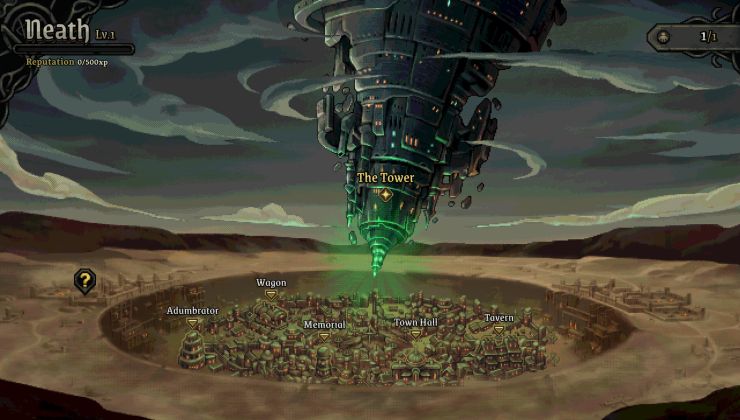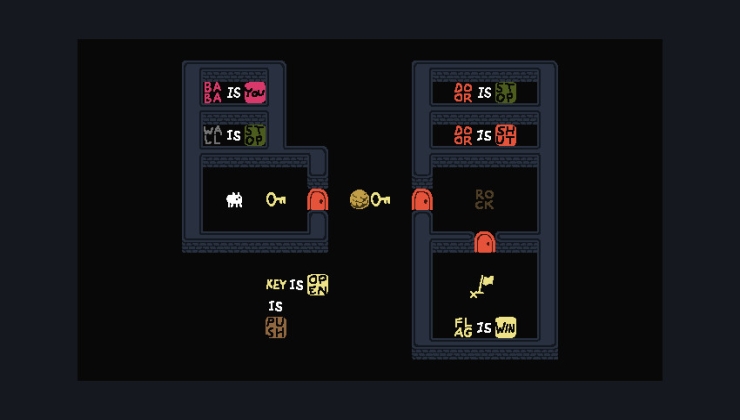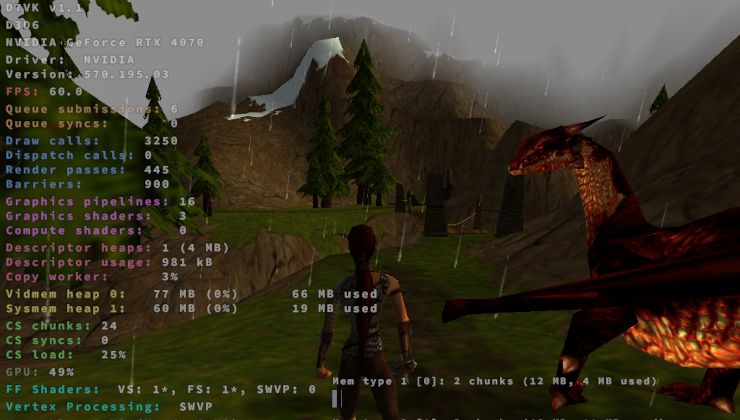Looks like Linux is truly becoming a gaming platform for the masses now, as AYANEO are throwing their hat in the ring with AYANEO OS on their hardware with the AYANEO AIR. While their new IndieGoGo crowdfunding campaign focuses on it being a Windows handheld, they're also developing their own full Linux distribution for their hardware which will be available to download "in the future".
So that's the Steam Deck with SteamOS, GPD looking at SteamOS, OneXPlayer also planning SteamOS and now AYANEO too. Seems like AYANEO OS will go a lot further than SteamOS in some ways though, with built-in ways of finding games across different stores you own. They said it directly supports the Linux version of Steam and they talked about running both Native Linux games and Windows games through Proton too along with other stores and they sound extremely positive about the Linux experience here.
Not only that, it will also have integrations for retro emulation too. A special app store was talked about to download other applications like Spotify, OBS, Firefox, Discord and plenty more (much like SteamOS has access to Flathub).
You can see them talk about it in the below video at around 1:46:30:

Direct Link
Definitely didn't imagine any of this happening a year ago, did you?
Seriously though this is awesome to see people keep building on open source, wine, proton, dvxk, etc. FTW! I hope they create something nice!
now i got to the part that disapoint me, telemetry, they going to install local installed games to suggest games? can i opt out of this?
[update]
he is implying copyright ownership
Last edited by elmapul on 15 Jul 2022 at 2:29 pm UTC
Anyway I would rather see more cooperation at the OS level...
Quoting: wit_as_a_riddleThe power of FOSS software, improvise, adapt, overcome! 🤣Was that, by any chance, a reference to an old Monty Python sketch involving John Cleese dressed as a bank robber?
Last edited by Mountain Man on 15 Jul 2022 at 9:48 pm UTC
Quoting: WildCoderI'm torn. I wish they'd work with Valve to improve Steam OS rather that go their own way. But on the other end it might be easier to bring non steam games to this device, maybe something Valve can bring onto steam OS later on.This will contain the whole Valve Stack. They will not redo the changes to the Linux kernel, nor to Mesa or the Radion drivers. Not to speak of core libraries like DXVK. Nobody invents the wheel twice. I think they will even use Gamescope, Mango-HUD and the other open source components from Valve's environment. And for any Linux system, Steam is the first port of call. That's even true for ChromeOS.
Anyway I would rather see more cooperation at the OS level...
This development will make Linux a major player in PC gaming in the long run. Valve could not do that alone. But they have set the ball rolling. I'm pretty sure they're happy about the development at Valve. The ratio in production between Nintendo and Valve is 10:1, but I see the demand for customised Linux gaming handhelds at the same level as the Switch.
Valve will benefit massively from this development because of Steam.
Last edited by 1xok on 15 Jul 2022 at 6:15 pm UTC
I'd put money on the next version of DirectX not being easy to translate into our APIs, too.
Starting soon after Windows 98 SE, Microsoft practically banished OpenGL to the point that it got stripped from Microsoft supplied graphics drivers. If you bought an OpenGL game, you had to go and get drivers from your video card vendor (which any reasonably savvy gamer would know to do anyway, but it's an obstacle for some)
It was a rare occurrence that I was absolutely speechless when Microsoft acquired Bethesda. I felt more numb than angry. I don't care about Activision (I already detest and don't buy) but Bethesda hurts.
Quoting: GroganI'd put money on the next version of DirectX not being easy to translate into our APIs, too.That can't really happen. Mantle is the paradigm now, with Vulkan, DX12, and Metal all being based on it. We're really good at translating DX12 to Vulkan. Or they could look backwards, and have something that's like the earlier versions of DirectX. We're really good at translating earlier versions of DirectX to Vulkan. If they tried to use something so completely different to either that it would be a headache then developers aren't going to switch to it either: they'll just use Vulkan instead... and we'd probably get really good at translating whatever it was to Vulkan, anyway.
Quoting: GuestA Chinese hand-held running BeijingOS? No thank you!Really? That's your problem? That they're Chinese?!
Better get used to it, the Chinese make most of the world's hardware.
. . . You do realize that with over a billion people, it's on average unlikely that any given product made by a company in China has code written personally by Xi Jinping, right?
Quoting: Mountain ManWhat an interesting development. I can see why Linux/SteamOS would be attractive to developers of handheld gaming devices because, first of all, Windows is not at all well suited for low-powered, portable hardware, and second, Linux/SteamOS is free, so no "corporate tax" to ship a device with a pre-installed operating system. And with Proton, Windows gamers will not have to give up a large chunk of their Steam library, and what games they do have to give up will be considered an acceptable trade-off because handheld gaming is almost thought of as a different genre, and people naturally do not expect to be able to play every game they can play on their desktop.not to mention, they can make their own store on it, and use the fact that many stores dont support linux as an double edge sword that the blades cure instead of harm:
if companies like epic, gog, ubisoft refuse to port their launchers, then its good for then, because they will face less competition for users of those devices.
on the other hand if those companies port their launchers and support linux, their devices get more appealing!
Quoting: GroganI'd put money on the next version of DirectX not being easy to translate into our APIs, too.GPUs have evolved to become more general-purpose over the years, and the current generation of APIs (Vulkan, Metal, DX12) all work under that premise and introduce very similar concepts.
If Microsoft made a very different API today it wouldn't only be moving away from Vulkan, it would be moving away from modern GPU architecture, and that's unlikely to happen.
What I'd be more worried about is companies like Nvidia introducing proprietary extensions that are gated off in their Linux drivers, and that is already happening today.
Last edited by setzer22 on 16 Jul 2022 at 6:17 am UTC
Quoting: GroganI'd put money on the next version of DirectX not being easy to translate into our APIs, too.they cant do that, because the apis are geting closer to how the hardware work internally, an drastic change in api would mean that the performance will suffer and developers will simply stick to older versions of dx.
what they can do and already are doing is investing in hardware, for example, an fast storage/expansion card that they made for xbox and also work on windows-pc
https://www.xbox.com/en-US/accessories/hard-drives/seagate-expansion-card
Unfortunately I am limited on data now :(
Quoting: Purple Library GuyI am a Monty Python fan but sadly no, just the Bear Grylls meme.Quoting: wit_as_a_riddleThe power of FOSS software, improvise, adapt, overcome! 🤣Was that, by any chance, a reference to an old Monty Python sketch involving John Cleese dressed as a bank robber?
Quoting: setzer22What I'd be more worried about is companies like Nvidia introducing proprietary extensions that are gated off in their Linux drivers, and that is already happening today.What extension are you thinking about? Nvidia is actually doing an amazing job of supporting every extension that makes sense on Linux (and windows for that matter) as much as possible. And they are usually the first to ship any extension, often times even on the day the extension is released.
I do recall one extension was released on windows only, something about memory pages, and I'd bet it's more to do with Linux not supporting the exact usecase more than anything.














 How to setup OpenMW for modern Morrowind on Linux / SteamOS and Steam Deck
How to setup OpenMW for modern Morrowind on Linux / SteamOS and Steam Deck How to install Hollow Knight: Silksong mods on Linux, SteamOS and Steam Deck
How to install Hollow Knight: Silksong mods on Linux, SteamOS and Steam Deck